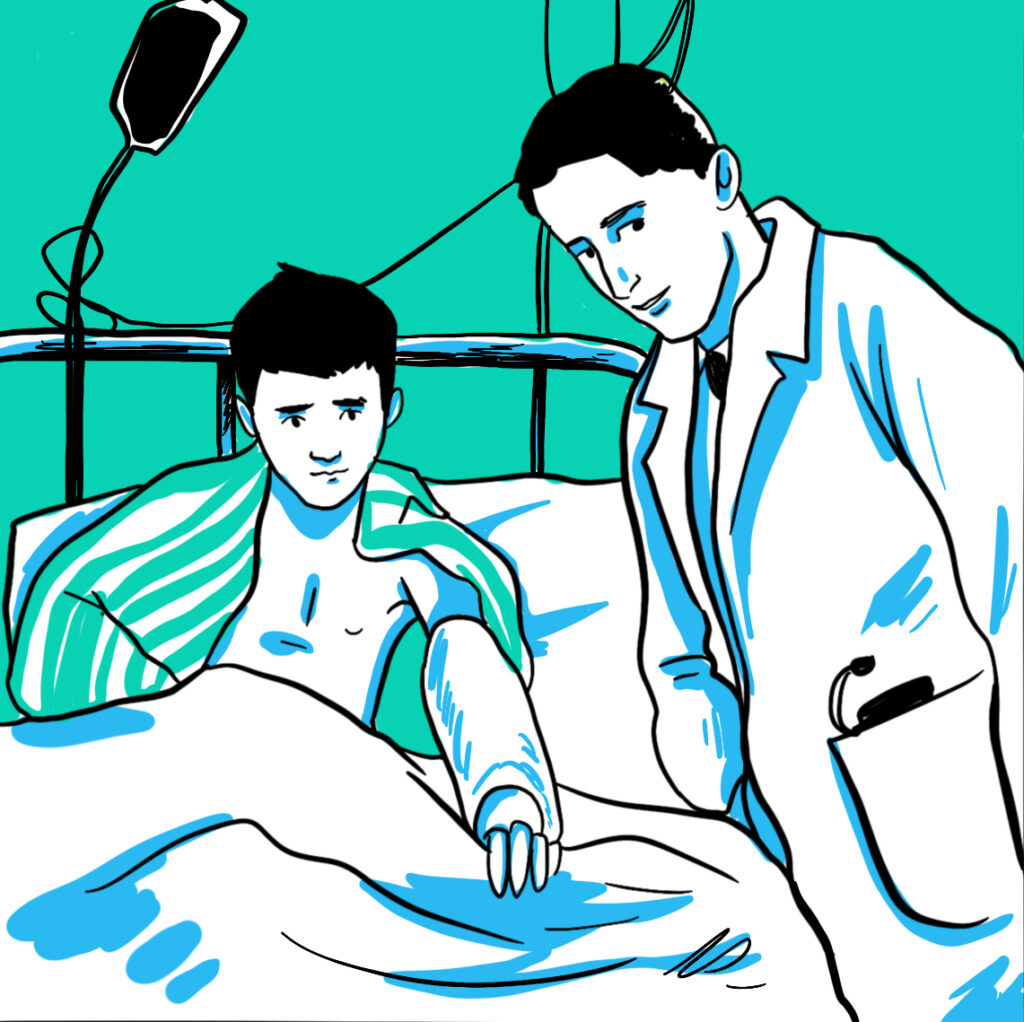Effective advocacy can help develop physiotherapy services
Those of us who live with haemophilia are used to receiving support from the professionals within our care teams. We rarely see services from the point of view of the nurses and physiotherapists who provide care to us. So joining a Zoom call with eight physiotherapists as part of Project Phoenix was full of surprises.
Project Phoenix aims to identify themes that could lead to positive change and impact for people living with a bleeding disorder. This was the second meeting of the physiotherapist group with a good turnout from centres across the UK. My first surprise came from hearing about the difference between comprehensive care centres (CCC) and haemophilia centres (HCs). There was a real need for more time and recognition of physiotherapy services within Trusts, particularly in smaller centres. A further surprise was learning that some centres do not allow physiotherapists’ study leave, which meant some would not have been able to attend the 2-hour session during the working day.
The main focus of discussion was the draft ‘Framework for Action – Maintaining MSK Health’ developed by the team based on previous discussions. It includes a series of building blocks, and it was agreed there needed to be a way to share case studies highlighting how individual services have implemented improvements, so that others can benefit.
The physios argued that centres should identify the level of care they provide and be realistic in what can be achieved with available funding. Trust managers would want to see a cost-benefit analysis and value for money evidence when changes are introduced. For example, if patients are given access to three physiotherapists, what would this investment provide 5-10 years down the line; could it mean a reduction in factor treatment usage? It was interesting to learn that funding is not always the only reason why a service doesn’t offer physiotherapy: one post has been advertised 5 times without the being filled.
Haemophilia services are very focused on data collection, particularly around factor usage and bleed rates. There was discussion on the reliability of patient generated data, particularly around whether we are treating chronic pain or bleeds. One idea emerged for the development of an economic model based on data.
The group decided it would focus on developing both quality improvement projects (where they could be based on tangible data) and case studies based on existing good practice. Sharing good practice where it exists can be very powerful tool. This was discussed in relation to transition from paediatric to adult care. The ‘Ready, Steady, Go Program’ was discussed at length along with communication platforms, where all parties would be involved and result in the paediatric team member slowly removing themselves, when the adolescent feels there is a good relationship with the new adult care team. Transition will happen if there is a physiotherapist or not, however you can improve transition if everyone is on board with the same focus and goals.
As someone who lives with haemophilia, the session showed me just how much thought goes into developing services by the professionals that we see and take for granted. It also showed me that patient advocacy can play a role in helping to develop those services. We need to empower patients to ask questions and ask for the services they need. This could be particularly beneficial for those attending centres with only limited physiotherapy. How many of us patients really know what comprehensive care is? We need to develop educational materials that would allow patients to understand exactly what they are entitled to. Patients should know where to look and how to access the care they need.


